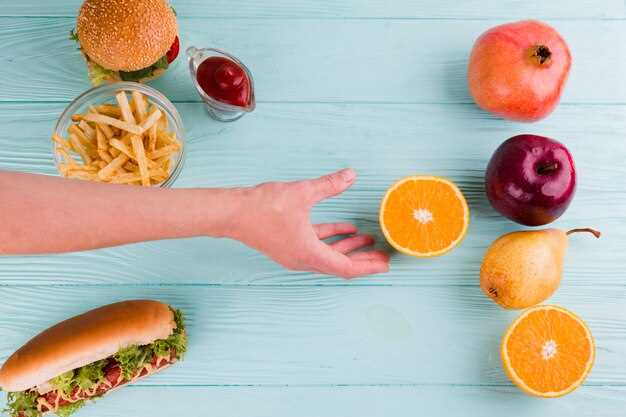
Are you taking atorvastatin to lower your cholesterol levels?
Did you know that what you eat can affect how well atorvastatin works?
Atorvastatin is a commonly prescribed medication used to reduce LDL cholesterol or “bad” cholesterol levels in the body. While atorvastatin can be highly effective in managing cholesterol, certain foods can interfere with its absorption and effectiveness.
It’s important to be mindful of the food interactions with atorvastatin to ensure that you are getting the maximum benefits from your medication.
Understanding atorvastatin
Atorvastatin is a medication that belongs to a class of drugs called statins. It is commonly prescribed to lower cholesterol levels and reduce the risk of cardiovascular diseases such as heart attacks and strokes.
Atorvastatin works by inhibiting an enzyme called HMG-CoA reductase, which is responsible for producing cholesterol in the liver. By blocking this enzyme, atorvastatin helps to lower the amount of cholesterol that is produced and increases the liver’s ability to remove LDL cholesterol from the blood.
Understanding how atorvastatin works is important because it can help you make informed decisions about your treatment. By taking atorvastatin as prescribed and following a healthy lifestyle, you can effectively manage your cholesterol levels and improve your overall cardiovascular health.
It is also important to note that atorvastatin may interact with certain foods, which can affect its absorption and effectiveness. Therefore, it is essential to understand how food can impact the absorption of atorvastatin and to follow the recommended guidelines for taking the medication with or without food.
| Food | Impact on Atorvastatin Absorption |
|---|---|
| Foods high in fat | May decrease the absorption of atorvastatin |
| Grapefruit juice | May increase the levels of atorvastatin in the blood |
| Alcohol | May increase the risk of liver damage |
By understanding how different foods can interact with atorvastatin, you can make informed choices about your diet and ensure that you are getting the most out of your medication. It is important to follow any dietary restrictions or guidelines provided by your healthcare provider to maximize the effectiveness of your treatment.
Remember, while atorvastatin can help lower cholesterol levels, it is not a substitute for a healthy lifestyle. It is important to eat a balanced diet, exercise regularly, and avoid smoking to achieve optimal results in managing your cholesterol levels.
If you have any questions or concerns about taking atorvastatin, always consult with your healthcare provider for personalized advice and guidance.
The impact of food on atorvastatin absorption
When taking atorvastatin, it’s important to consider the impact of food on its absorption. Food can significantly affect how the medication is absorbed and metabolized in the body. Certain foods can either enhance or diminish the effectiveness of atorvastatin, so it’s crucial to understand how to best optimize its absorption.
Enhancing absorption: Some foods can actually enhance the absorption of atorvastatin, allowing it to be more effectively absorbed by the body. These foods include those that are high in healthy fats such as avocados, olive oil, and nuts. Eating these foods alongside atorvastatin can help improve its absorption and overall effectiveness.
Diminishing absorption: On the other hand, certain foods can diminish the absorption of atorvastatin, making it less effective. These foods include those that are high in calcium, such as dairy products, and those high in fiber, such as whole grains. Consuming these foods at the same time as atorvastatin can reduce its absorption and potentially decrease its effectiveness.
It’s important to note that while food can affect the absorption of atorvastatin, it’s still crucial to consistently take the medication as prescribed by your healthcare provider. Always consult with your doctor or pharmacist for personalized guidance on how to optimize your atorvastatin absorption.
By understanding the impact of food on atorvastatin absorption, you can make informed decisions about your diet and optimize the effectiveness of the medication. Remember to make any changes to your diet in consultation with your healthcare provider to ensure the best possible outcomes.
Optimal timing for taking atorvastatin with food
When taking atorvastatin, it is important to consider the timing of your meals. This is because certain types of food can interact with the absorption of atorvastatin and affect its effectiveness in lowering cholesterol levels.
Avoid taking atorvastatin on an empty stomach
Atorvastatin should not be taken on an empty stomach as it relies on the presence of food to be absorbed properly. When taken without food, the absorption of atorvastatin may be significantly reduced, leading to a decrease in its effectiveness.
Take atorvastatin with your main meal
The optimal timing for taking atorvastatin is with your main meal of the day. This is typically the meal that contains the highest amount of fat. Consuming atorvastatin with a meal that is high in fat helps to increase its absorption, allowing it to work more effectively in lowering cholesterol levels.
Avoid consuming grapefruit or grapefruit juice
Grapefruit and grapefruit juice should be avoided when taking atorvastatin. This is because grapefruit contains a compound that can interfere with the metabolism of atorvastatin in the body. Consuming grapefruit or grapefruit juice can lead to higher levels of atorvastatin in the bloodstream, increasing the risk of side effects.
Follow your doctor’s instructions

It is important to follow your doctor’s instructions regarding the timing of taking atorvastatin with food. They may provide specific recommendations based on your individual needs and medical history. It is essential to take atorvastatin as prescribed to ensure its effectiveness in managing your cholesterol levels.
By understanding the optimal timing for taking atorvastatin with food and following your doctor’s instructions, you can maximize the benefits of this medication in reducing your cholesterol levels and improving your heart health.
Food types to avoid when taking atorvastatin
When taking atorvastatin, it is important to be mindful of the types of food you consume, as certain foods can interfere with the effectiveness of the medication. It is recommended to avoid the following food types:
- Grapefruit: Grapefruit and grapefruit juice can increase the levels of atorvastatin in your blood, leading to a higher risk of side effects. It is best to avoid consuming grapefruit or drinking grapefruit juice while taking this medication.
- Fatty Foods: Foods high in fat can decrease the absorption of atorvastatin in your body. It is advisable to limit your intake of fatty foods, such as fried foods, full-fat dairy products, and high-fat meats.
- Alcohol: Although moderate alcohol consumption is usually not a problem when taking atorvastatin, excessive alcohol intake can increase the risk of liver damage and other side effects associated with the medication. It is important to drink alcohol in moderation or consult your doctor regarding alcohol consumption while on atorvastatin.
- Grapefruit juice may contribute to harmful side effects when consumed with atorvastatin.
By avoiding these food types, you can ensure that atorvastatin is effectively absorbed by your body and works optimally to lower your cholesterol levels. Remember to follow your doctor’s advice and maintain a healthy diet to achieve the best results while taking atorvastatin.
Recommended diet while on atorvastatin
When taking atorvastatin, it is important to follow a healthy diet to optimize its effectiveness. Here are some dietary recommendations to consider while on atorvastatin:
1. Increase your intake of fruits and vegetables
Fruits and vegetables are rich in antioxidants, fiber, and essential nutrients. Include a variety of colorful fruits and vegetables in your diet to support heart health.
2. Choose whole grains
Opt for whole grains like brown rice, quinoa, and whole wheat bread instead of refined grains. Whole grains are high in fiber and can help lower cholesterol levels.
3. Include lean proteins
Choose lean sources of protein such as poultry, fish, tofu, and legumes. These foods are low in saturated fats and can help reduce cholesterol levels.
4. Consume healthy fats
Avoid saturated and trans fats and instead focus on consuming healthy fats such as olive oil, avocados, nuts, and seeds. These fats can help improve heart health.
5. Limit processed and sugary foods
Avoid processed foods that are high in saturated fats, sodium, and added sugars. These foods can contribute to high cholesterol levels and should be consumed in moderation.
6. Monitor portion sizes
Be mindful of portion sizes to maintain a healthy weight and prevent overeating. Use measuring cups or a food scale to accurately measure your food portions.
7. Stay hydrated
Drink plenty of water throughout the day to stay hydrated. Hydration is important for overall health and can help support the body’s natural processes, including cholesterol regulation.
Remember to consult with your healthcare provider or a registered dietitian before making any significant changes to your diet while taking atorvastatin. They can provide personalized recommendations based on your specific needs and health goals.
Tips for managing food interactions with atorvastatin
Managing food interactions with atorvastatin is important to ensure the effectiveness of the medication. Here are some tips to help you navigate this:
1. Take atorvastatin with or without food
Atorvastatin can be taken with or without food. However, taking it at the same time each day will help you remember to take it regularly.
2. Follow your healthcare provider’s instructions
Your healthcare provider will give you specific instructions on when and how to take atorvastatin with food. Follow their guidance to get the best results.
3. Avoid certain foods and drinks
Some foods and drinks can interfere with the absorption of atorvastatin or increase the risk of side effects. It is recommended to avoid consuming grapefruit or grapefruit juice while taking atorvastatin. These can inhibit the enzyme that metabolizes the medication, leading to an increase in its concentration in the body.
4. Consider timing and consistency
If you decide to take atorvastatin with food, try to take it around the same time each day. This will help you maintain consistency in its absorption and effectiveness.
5. Be mindful of other medications and supplements

Some medications and supplements can interact with atorvastatin and affect its absorption. Inform your healthcare provider about all the medications and supplements you are taking to avoid any potential interactions.
6. Monitor for side effects
Pay attention to any side effects you might experience while taking atorvastatin with food. If you notice any unusual symptoms, consult your healthcare provider for further guidance.
7. Eat a balanced diet
Maintaining a healthy, balanced diet is important while taking atorvastatin. It can help improve the medication’s effectiveness and support overall cardiovascular health.
| Food Types to Avoid | Reason |
|---|---|
| Grapefruit or grapefruit juice | Inhibits the enzyme that metabolizes atorvastatin |
| High-fat meals | May decrease absorption of atorvastatin |
| Alcohol | May increase the risk of liver damage |
By following these tips, you can effectively manage food interactions with atorvastatin and optimize the benefits of the medication for your cardiovascular health.
